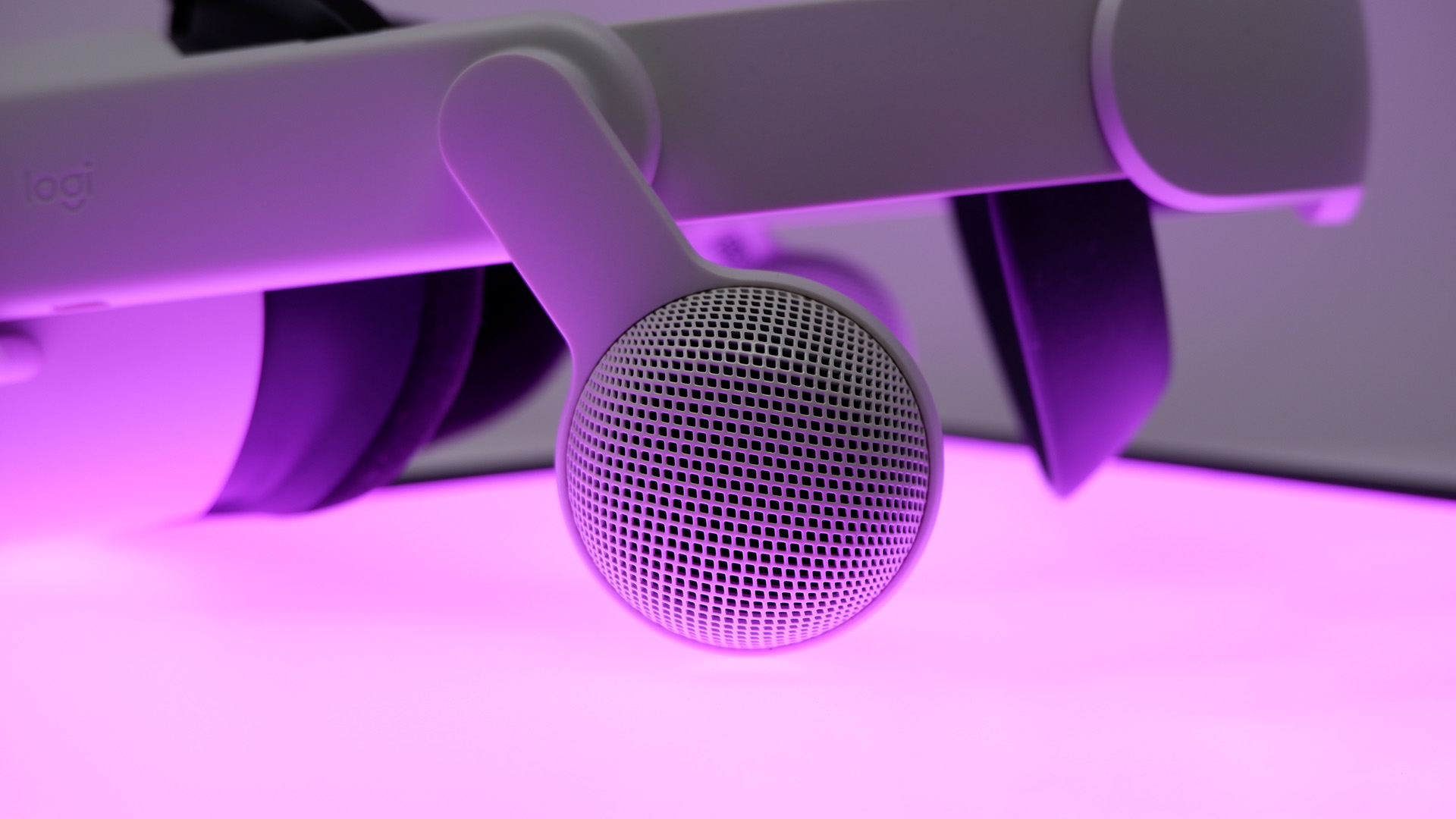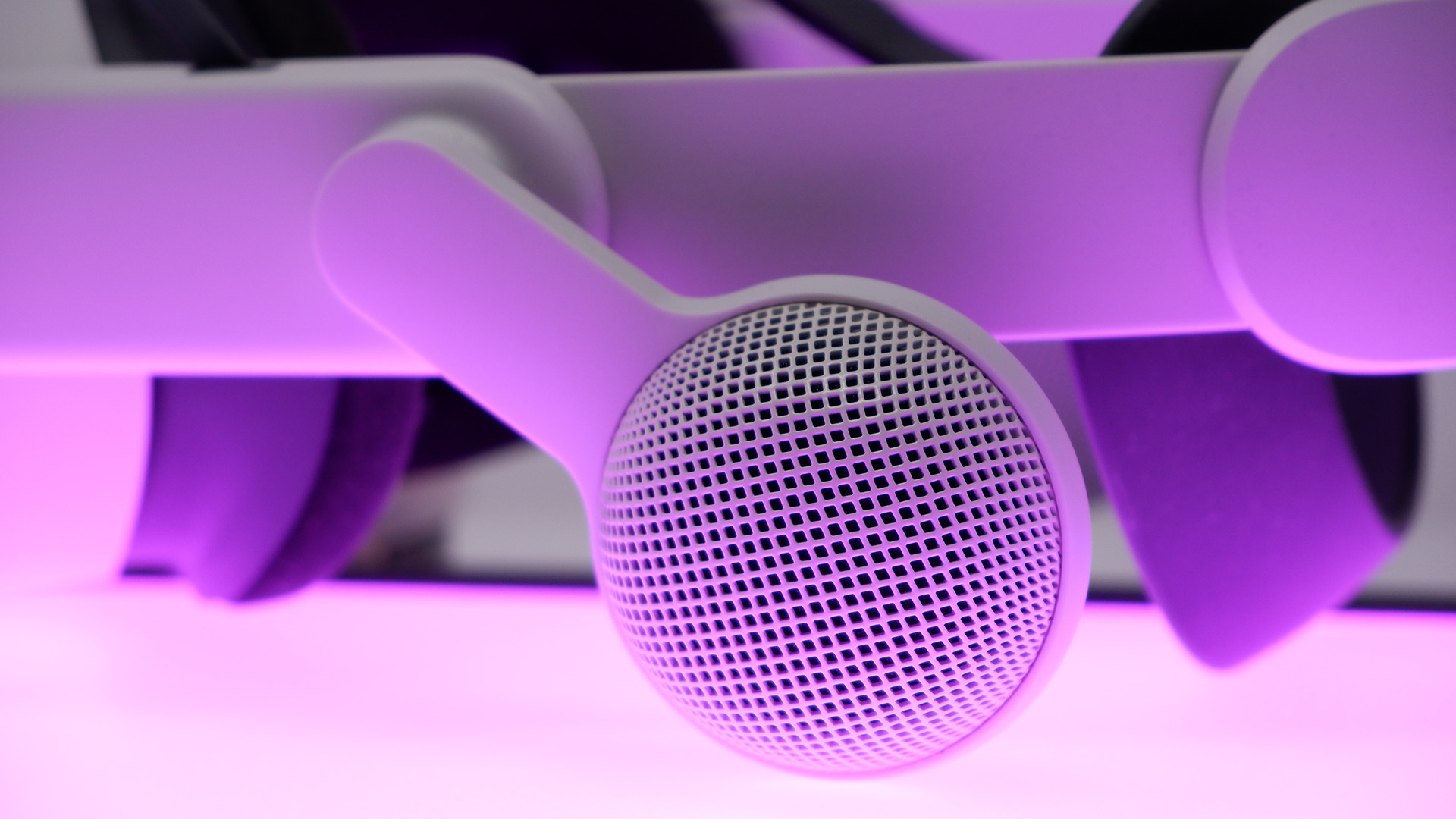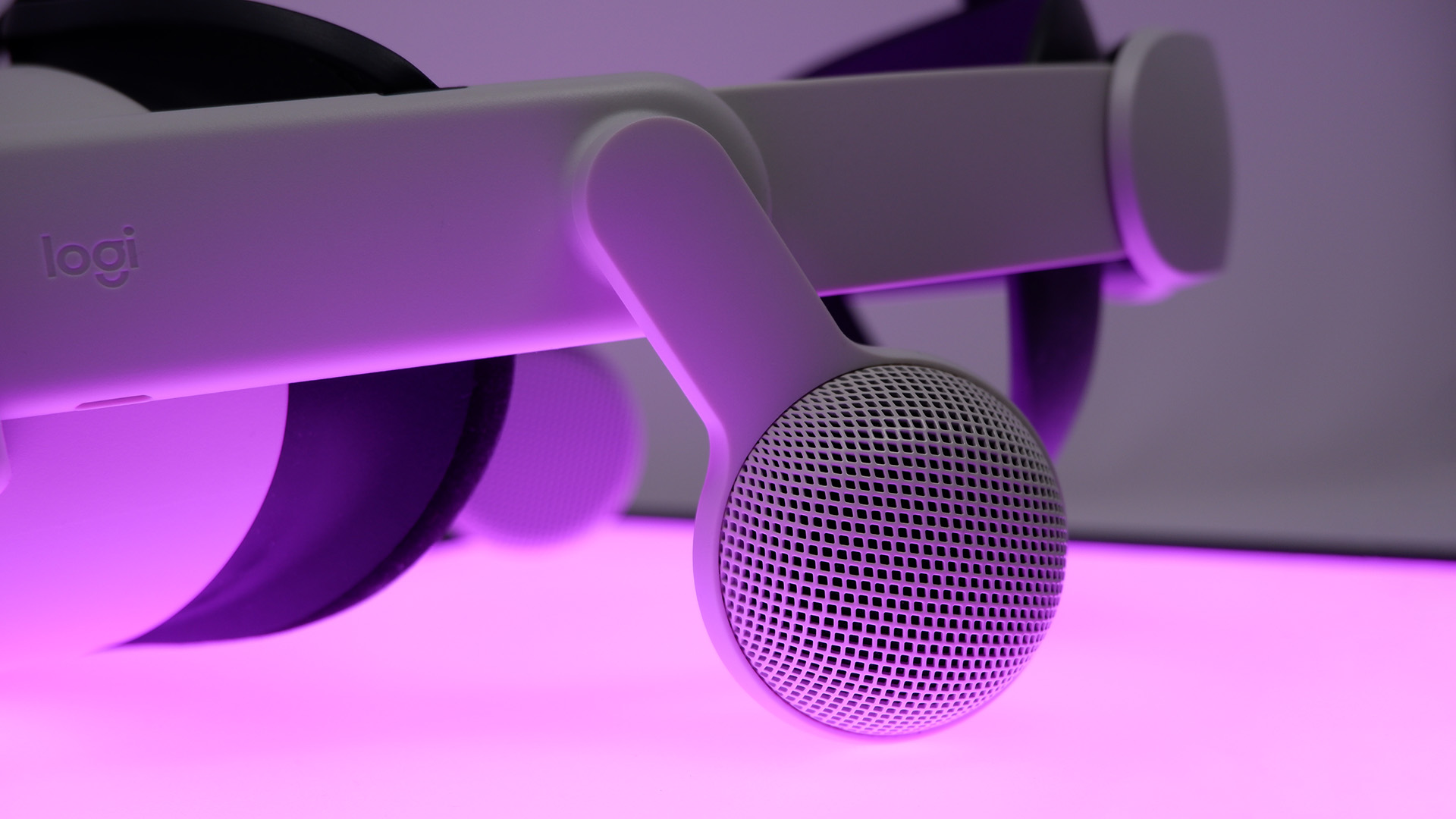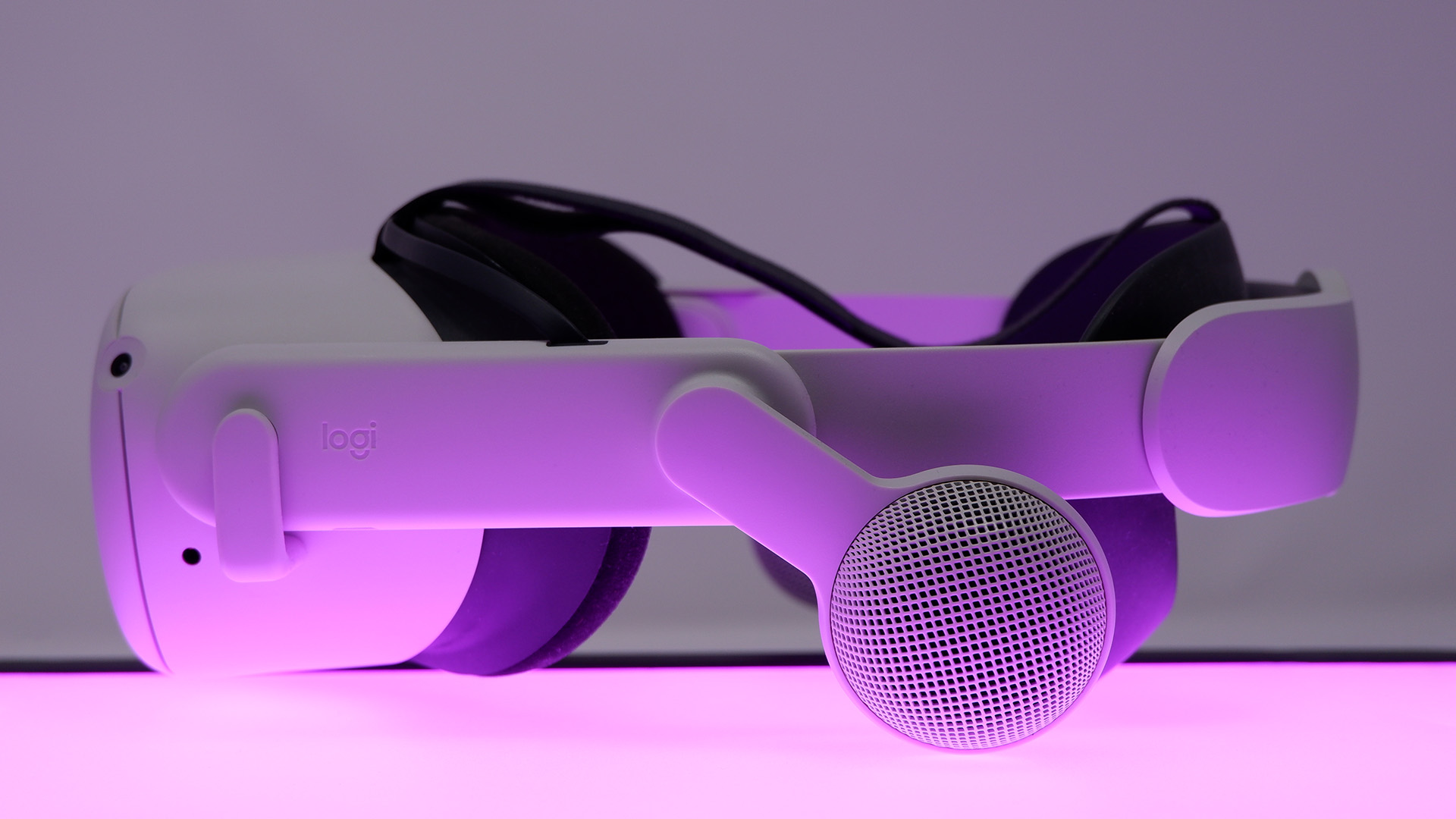Our Verdict
This is the best audio upgrade for the Quest 2.
For
- High quality VR audio
- Easy install
- Overhauls the Quest 2's weakest feature
Against
- An expensive upgrade
- Link cable won't connect via Chorus USB Type-C connection
PC Gamer's got your back
An often overlooked factor for a great VR experience is audio quality. I wouldn't feel so strongly about this if it wasn't for the Valve Index, which introduced me to excellent VR audio capable of tricking your brain into thinking you're someplace else. The issue is I don't own a Valve Index—it's a $1,000 headset. I own a Meta Quest 2, and I've been trying to find the best way to mimic the Index with it ever since I got it.
The Logitech Chorus is the best way I've found so far of doing just that.
The default audio solution for the Quest 2 leaves a lot to be desired. I get why it wasn't top of the priorities list for the entry-level headset: it does a lot of other things very well instead and it used to be frightfully cheap (it is, however, a little pricier now). But I do often wish for a little more oomph in the audio department. The two tiny cut-out speakers on the Quest 2 do a reasonable job of blasting the audio towards your ears while you're wearing the headset, but they don't deliver much clarity, bass, or sound isolation. They also don't deal particularly well with high volume. All of which takes me out of the virtual reality experience.
The obvious solution is to plug in a pair of headphones. Easily done, the Quest 2 offers up a standard 3.5mm port for most headphones to slot right into. That's been my go-to approach for the past few years—I don't have a pair specifically made with a short cable run for the Quest 2 but a regular pair of SteelSeries Arctis Pro Wireless headphones I have for calls works well enough. You just have to deal with the mess of cables when taking the headset on and off.
Drivers: Dual custom built and tuned open type drivers
Connectivity: USB Type-C
Price: $100/£90
Headphones are decent enough but they're not a completely perfect fit for the VR experience. VR should beget a more bespoke audio experience to reflect the 3D world surrounding you when you're wearing the headset—stereo headsets don't do this very well.
That's why I've always come back to the Valve Index's audio solution: two off-ear BMR drivers designed to both fully encompass the wearer's ears with audio and maintain long-term comfort. It achieves both goals very well. Audio comes through loud and clear, with an open-back design delivering an expansive sound stage for better directional audio. Despite the obvious gap between you and the drivers, it's surprisingly good on the sound isolation front, too.
The Logitech Chorus is close to an exact replica of the Index's audio solution in a Quest 2-friendly form factor. The Chorus also includes two off-ear, open-back BMR drivers to near-enough mimic the audio properties of its inspiration.

It really is quite a simple like-for-like audio solution and it works as well as I had hoped. The audio quality is quite simply excellent and it nails that level of immersive audio in a way that my headphones just couldn't hack. They're also capable of going much louder than the built-in speakers.
Installation is easy: the Chorus clips on easily and securely to the Quest 2 frame. It's relatively ambivalent to the strap you have installed on your headset, as clips onto the two solid arms attached to the headset proper. It worked just fine with my Elite Strap, and of course it will work with the standard fabric strap, too. Third-party straps with a similar design principle to these should be similarly compatible. You need only plug in the compact USB Type-cable run into the headset and you're ready to go.
The short USB Type-C connection also means there's no more cables to tangle yourself in with the Chorus. While it does take up the only USB Type-C port on the headset, the Chorus offers a USB passthrough so you can still run a line to your PC to charge the headset easily. (Update: Oculus Link functionality does not function via the USB port on the Chorus, which admittedly limits the Chorus to the standalone functionality of the Quest 2. There are workarounds, but none that are as simple as I'd like.)

At $100/£90, the Chorus rivals a whole new pair of headphones in price, and admittedly it's a lot more limited in use. It's easy to look at the Quest 2 as a cheaper option than many other higher-end PC VR headsets, such as the Valve Index, but if you want to piece together a more comfortable, impressive VR experience with the Quest 2 you do have to spend quite a bit to get there.
The Logitech Chorus hits a perfect note with me.
My VR headset setup now includes the $100 Logitech Chorus, $60 Elite Strap, and $80 Link Cable. If I bought all this today, with the Quest 2 at its new $400 price, I'd be looking at spending $640.

Sure, it's not the $999 that Valve asks for the Index, but it all adds up. The entry-level Quest 2 can quickly become a whole lot more expensive with a few, in my opinion, must-have accessories.
Admittedly, a more comfortable strap is more-so a must-have in my opinion, if simply because I couldn't stand to wear the Quest 2 with its original fabric one after a while of using it.
The Logitech Chorus hits a perfect note with me, however. It's exactly what I've been looking for in an audio upgrade for the Quest 2, and it delivers all-round immersive audio to rival the best on the market in my books. If you're after a similar upgrade or just sick of the cable tangles, it's well worth considering the Chorus.
This is the best audio upgrade for the Quest 2.

Jacob earned his first byline writing for his own tech blog. From there, he graduated to professionally breaking things as hardware writer at PCGamesN, and would go on to run the team as hardware editor. He joined PC Gamer's top staff as senior hardware editor before becoming managing editor of the hardware team, and you'll now find him reporting on the latest developments in the technology and gaming industries and testing the newest PC components.


